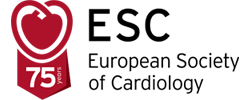Dear Members,
In this newsletter I would like to focus on antiplatelet treatment in coronary syndrome. Furthermore, I cordially invite you to enjoy our educational courses described below.
The duration of antiplatelet therapy after percutaneous coronary intervention (PCI) is still controversial (1–6). Dr Porta and co-workers from Italy have aimed to provide an updated assessment of the efficacy–safety profile of very short (1 or 3 months) dual antiplatelet therapy (DAPT) compared with long (12 months) DAPT in patients undergoing PCI. In a meta-analysis of a total of 35 785 patients undergoing PCI, they report that compared with long DAPT, very short DAPT did not increase the risk of ischaemic complications, while reducing the risk of major bleeding or any bleeding by >30%.
Dr. Jukema et al. have aimed to describe the effectiveness and safety of P2Y12 receptor inhibitors in clinical practice in patients with ST-segment elevation myocardial infarction (STEMI) based on data from contemporary European acute coronary syndrome (ACS) registries. The authors used five registries from the PIRAEUS initiative (7). They concluded that the prasugrel or ticagrelor new P2Y12 inhibitors compared with clopidogrel have favourable outcomes in clinical practice while not being inferior in terms of safety.
In a study from Korea, Dr Jeong and colleagues sought to develop and validate a new risk scoring system that can be used to guide the selection of potent P2Y12 inhibitors by balancing ischaemic benefit and bleeding risk (8). The authors used a cohort of 10 687 patients who participated in the Korea Acute Myocardial Infarction Registry-National Institutes of Health study. They present a new scoring system, which might be a useful clinical tool for guiding DAPT by balancing ischaemic benefit and bleeding risk, especially among Asian populations.
Antithrombotic therapy in patients with cardiogenic shock and out-of-hospital cardiac arrest (OHCA) is not covered by existing ESC STEMI and non-ST elevation ACS guidelines (9). In this issue of the journal, we publish a Position Paper from the European Society of Cardiology (ESC) Working Group on Thrombosis, in association with the Acute Cardiovascular Care Association (ACCA) and European Association of Percutaneous Cardiovascular Interventions (EAPCI) on this topic.
Regarding educational activities and conference, we have due to the corona pandemic successfully changed the formats to online meetings regarding the "All About Clinical Trials" (AACT), Pharmacotherapy in Older People (POP) and the Annual congress of the ESC Working Group on Cardiovascular Pharmacotherapy, the EuroCVP. We are very happy that the change to virtual courses has resulted in a vast increases in participation. For example in the Pharmacotherapy in Older People course (25-26 October 2020), there was 317 participants, which was an increase of 692%. During the All About Clinical Trials (10-11 December 2020), 228 colleagues participated, which was an increase of 245%. Detailed information regarding programme, dates etc. is found under Working Group on Cardiovascular Pharmacotherapy, Education and Meetings.
On behalf of the Working Group nucleus,
Alexander Niessner, Chairperson 2020-2022

 Our mission: To reduce the burden of cardiovascular disease.
Our mission: To reduce the burden of cardiovascular disease.